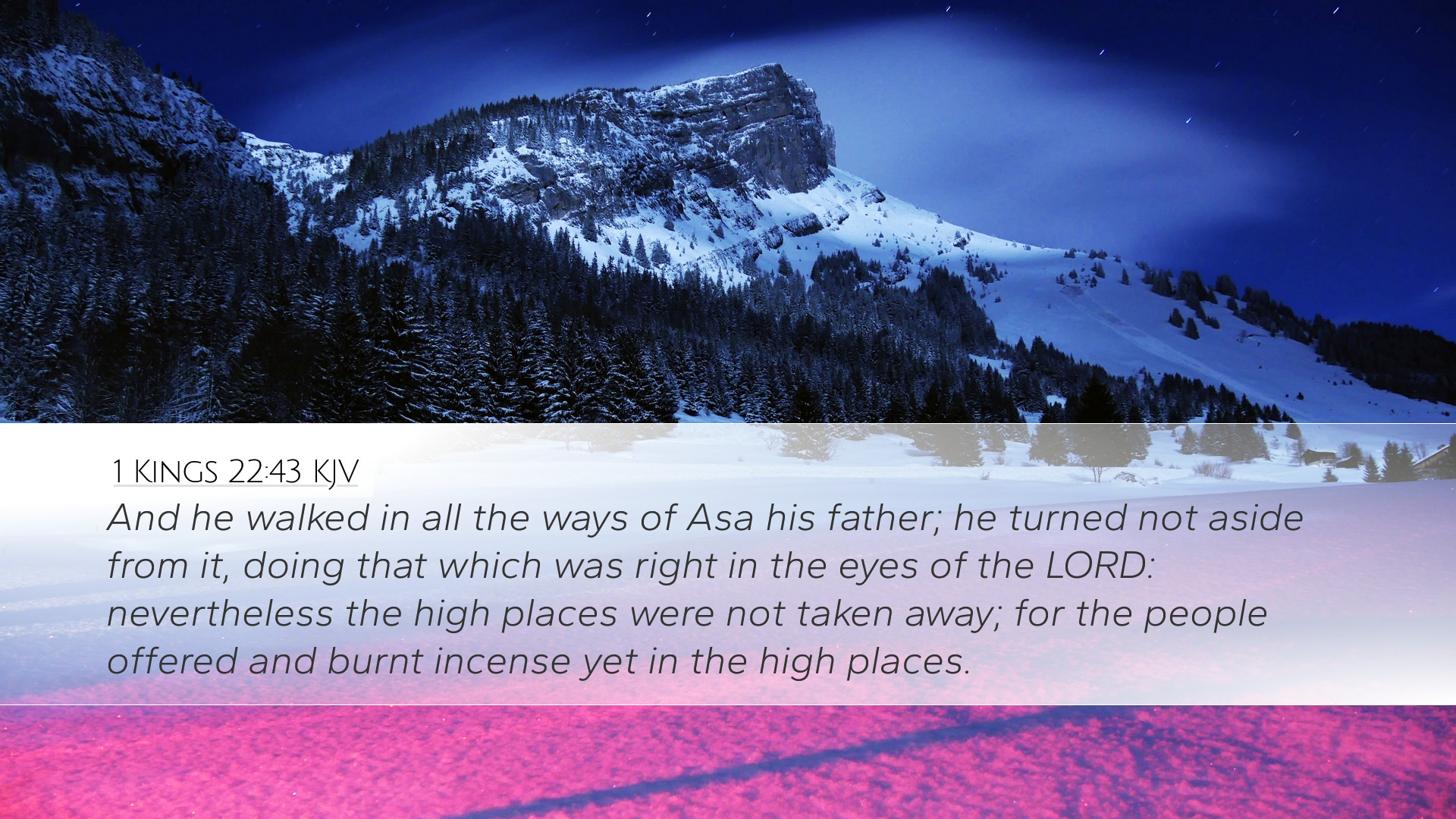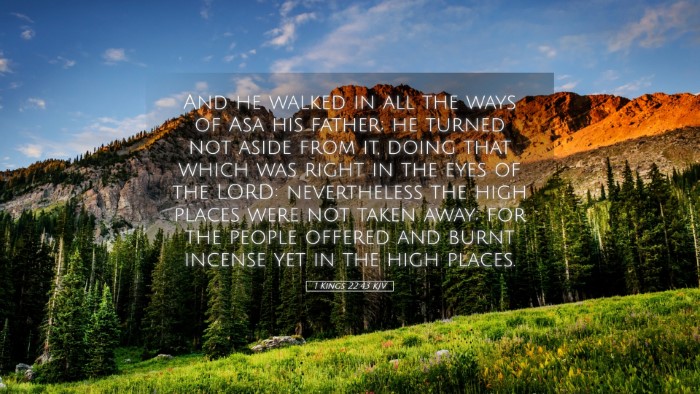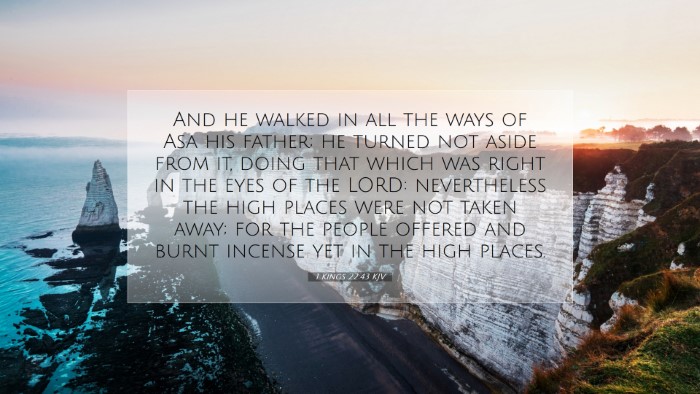Commentary on 1 Kings 22:43
1 Kings 22:43 (ESV): "And he walked in all the way of Asa his father; he did not turn aside from it, doing what was right in the sight of the LORD. Nevertheless, the high places were not taken away, and the people still sacrificed and made offerings on the high places."
Introduction
The verse under consideration encapsulates a significant moment in the history of Israel's monarchs, specifically referencing King Jehoshaphat of Judah. Despite his commendable actions in walking in the ways of his father Asa, there remains a stark contrast between genuine worship and the prevailing practices that continued in the land.
Historical Context
Jehoshaphat reigned during a tumultuous period in Judah’s history. His father's reign, Asa, was marked by a notable reform that sought to eradicate idolatry and restore proper worship of Yahweh. However, this verse suggests a lingering challenge that Jehoshaphat faced – the unremoved high places where the people continued to offer sacrifices.
The Kingship of Jehoshaphat
The commentary by Matthew Henry elaborates on Jehoshaphat's character, noting that he exhibited “the same integrity toward God” as Asa, notwithstanding the shortcomings that persisted within the nation. His reign was characterized by a desire to uphold obedience to Yahweh, which aligns with the theological insistence on righteous rule.
Albert Barnes emphasizes the duality of Jehoshaphat's reign - while he adhered to Yahweh's commands, the continuance of the high places signifies a compromise that reflects the wider spiritual condition of the people. This duality prompts discussion regarding the efficacy of leadership when societal norms contradict divine statutes.
The High Places: A Cause for Concern
Adam Clarke provides a critical examination of the high places, which symbolize both a legacy of idolatry and the people's reluctance to wholly turn away from their ancestral practices. The high places allowed for convenient worship that intertwined with the idolatrous practices, presenting a theological tension between genuine worship of Yahweh and the syncretistic practices of the people.
The high places, as argued by Clarke, became points of contention in the theology of Judah. They reflect a people who have not fully committed to the covenant relationship established with Yahweh, showcasing how reform can be incomplete.
Theological Implications
This verse elicits varied theological reflections which are beneficial for pastors, students, and scholars alike. The teachings of Matthew Henry highlight the implications of partial obedience. Just as Jehoshaphat sought to align his actions with the divine commands, the presence of high places indicates a lingering inconsistency in faith commitments among the people.
From a pastoral perspective, this verse serves as a reminder that external conformity to worship practices must be matched by a sincere inner devotion to God, as noted by Barnes. The persistence of high places raises questions about the authenticity of worship and the need for comprehensive reform in the life of the believer.
Lessons for Contemporary Worship
Reflecting on Jehoshaphat's reign provides contemporary worshipers insights into their own practices. Adam Clarke urges today’s Christians to consider whether they harbor high places in their lives—those elements or practices that distract from the solitude and simplicity of true worship. The call for a pure and undistracted focus on God stands paramount, as highlighted throughout the biblical narrative.
In Summary: This verse acts as a bridge connecting theological reflections on leadership, genuine worship, and the ongoing struggle against syncretism.
Conclusion
In conclusion, 1 Kings 22:43 serves as a pivotal text that informs not only the historical context of Judah's leadership but also imparts deep theological insights about the nature of worship, obedience, and the complexities inherent in reformative practices. Jehoshaphat's legacy extends beyond his actions to challenge current and future leaders in their unwavering commitment to true worship of Yahweh amidst societal complexities.


